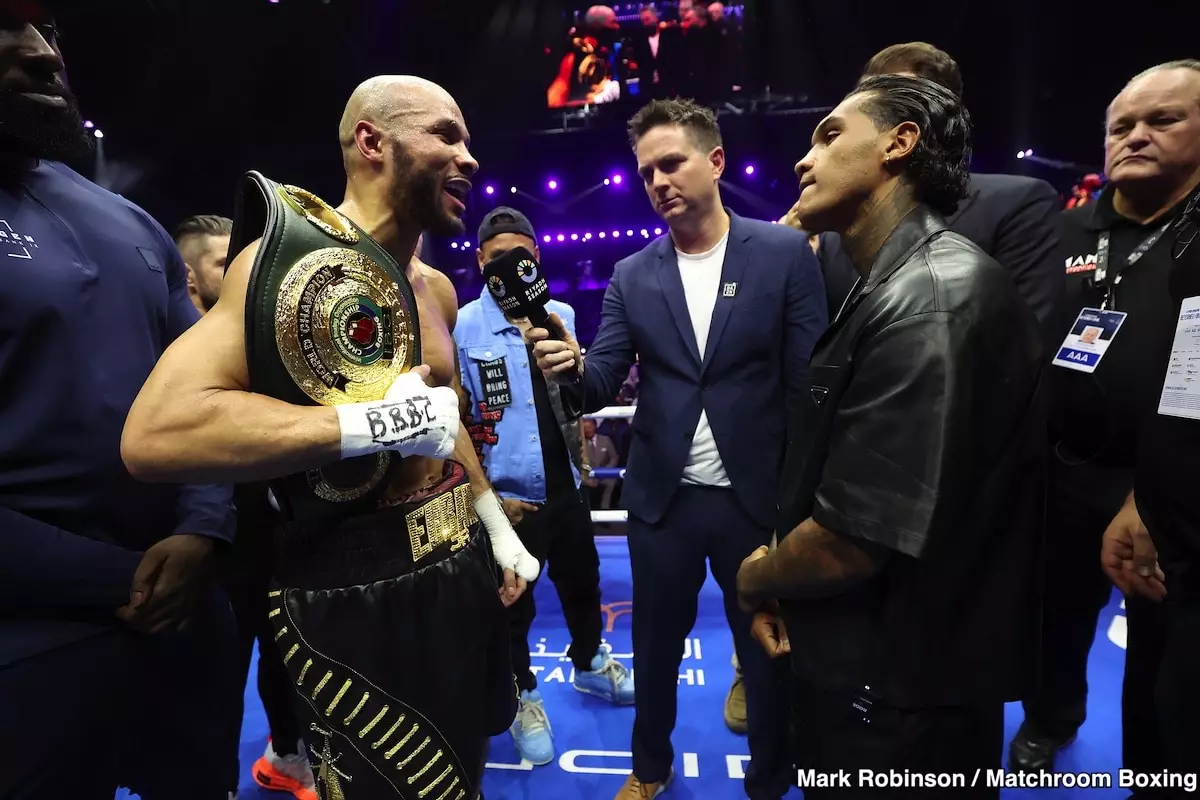The boxing world has been abuzz with the potential for a much-anticipated matchup between Chris Eubank Jr. and Conor Benn. After a tumultuous turn of events, the shadows of the past are hauntingly close to being rekindled in what many fans hope will be the spectacle of the year. Promoter Ben Shalom recently revealed to Sky Sports that Eubank Jr. is open to a purse split of 55%, an act he describes as “hugely generous.” This statement underscores the significance of this potential fight, which was originally slated for October 2022 before it all fell apart due to Benn testing positive for a banned substance.
Following that controversial incident, the narrative escalated with Benn fiercely battling to clear his name. His perseverance paid off, as he has regained his boxing license, reigniting the possibility of facing Eubank in the ring once again. Fans are understandably excited, but as Shalom remarks, his team has done their part, and now it’s time for Benn’s team to approach negotiations pragmatically. However, for those familiar with boxing’s intricate business dealings, the road to this fight is anything but straightforward.
A crucial dynamic of this impending bout revolves around the question of who holds the “A-side” status. Historically, the A-side fighter commands more financial leverage and public attention. Eubank Jr. suffered a stoppage loss to Liam Smith, which might tarnish his reputation. In contrast, Conor Benn’s return to form, indicated by his ongoing negotiations for high-stakes bouts against other top contenders, adds twists to this evolving rivalry.
Shalom’s comments highlight his belief that Eubank’s willingness to accept a less-than-50% share is admirable, yet one can question how much weight these statements carry in the grand scheme. The numerical breakdown might appear generous on the surface, yet the context of boxing politics could render it largely ineffective. Negotiation is an art, often clouded by ego, publicity, and financial realities. For Benn, accepting 45% may not be palatable if he perceives his marketability as surpassing Eubank’s.
Further complicating matters is the updated information from Benn’s advisor, Keith Connolly, who hinted to ESPN about future plans for Benn to go up against Mario Barrios, rather than Eubank. Highlighting an ambition for a major PPV event with Gervonta Davis, Connolly’s statement casts a shadow on the immediate viability of the Eubank fight. The prospect of lucrative matchups can shift any fighter’s priorities and strategic planning.
Empowerment in the sport often comes with timing; if Benn were to secure victories over Barrios and possibly Davis, the question arises, would he still need Eubank? The implications here are enormous, as Benn could potentially negotiate a more favorable split against Eubank or bypass him altogether for bigger paydays.
As we dissect the intricacies surrounding the proposed clash between Chris Eubank Jr. and Conor Benn, one must acknowledge that boxing is just as much a business as it is a sport. The drama unfolding provides insight into the porous nature of athlete negotiations, support teams, and ever-changing career trajectories. While fight fans anticipate this grudge match, they must also grapple with the realities of boxing’s infamously fragmented nature. The unpredictability doesn’t merely lie in who steps into the ring, but also how the business behind the scenes continues to evolve.
Ultimately, whether or not this much-touted rematch occurs hinges not solely on the athletes involved, but also on the myriad external factors—including negotiation strategies, the allure of alternate matchups, and shifting market dynamics. As the boxing world waits with bated breath, it’s safe to say that this saga is far from over, and the final chapter is yet to be written.

